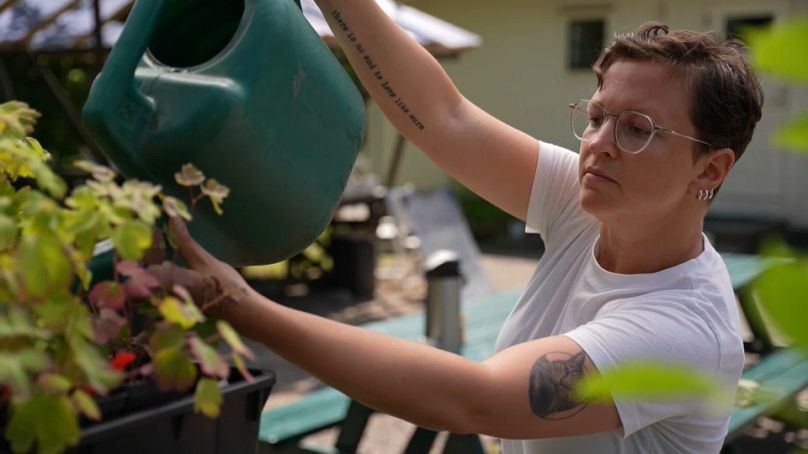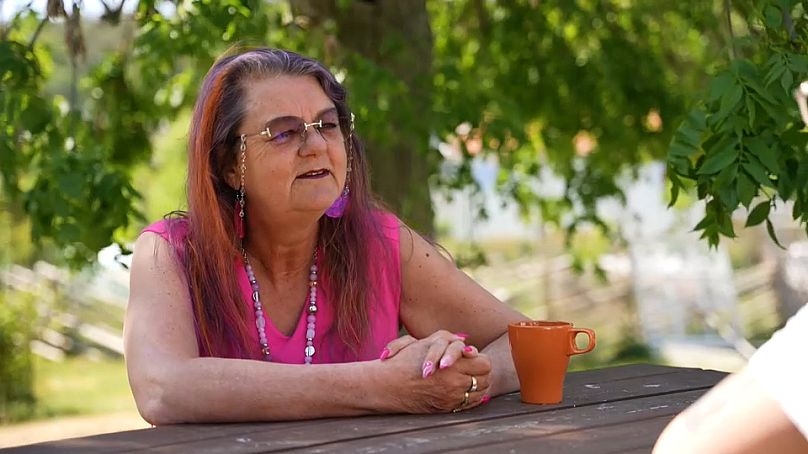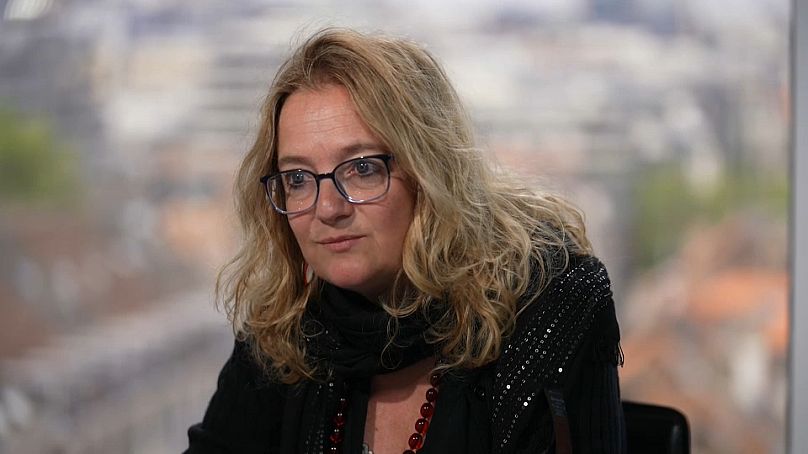In the latest Real Economy episode we learn about the people behind Sweden's social economy enterprises who are looking to make a positive impact, rather than simply maximise profits.
When we talk about the economy, we often mention growth, profits, managers and shareholders.
In this latest episode of Real Economy, we travel to Sweden's second-largest city, Gothenburg, to learn more about another type of economy, one that puts people first: the social economy.
Matilda Holgersson is a 31-year-old Swede with a profound love for music, arts, and cats. Several years ago, health issues kept her away from the job market for five years.
"In 2017, I was studying at university, but I had a burnout and was diagnosed with exhaustion syndrome and depression. It happened very quickly, and I became very ill," she told Real Economy reporter Bryan Carter.
"The first six months, I don't remember much because I was in such a bad state and had severe anxiety. I was hospitalised a lot and had very heavy treatments."
Gradually, Matilda managed to feel better and get her social life back. Part of her healing process comes from the job she’s had for the last six months at Ängås Gård, a food production and events cooperative, which offers Matilda, and people with similar struggles, an opportunity to bounce back.
"The positive aspect of working in a cooperative is that you help each other and there is a lot of understanding of each other’s needs," she revealed.
"In places where I have worked before, it was seen as a bit odd to have a bad day. You are not supposed to show how you're feeling. But here you're allowed to be just as you are. You work as much as you can."
Matilda’s workplace is part of a sales organisation called Social Trade. Led by its CEO, Mari Odenbjörk, it seeks to overcome some of the stigma in Sweden associated with cooperatives and social enterprises, in order to build business ties with more traditional types of companies.
"Cooperatives are still a little bit frowned upon in Sweden. It's not really legit," Mari explained. "I'm working with people who want to help people, who really want to make a difference."
Rethinking healthy work
In the harbour of Gothenburg, one social enterprise, Kajskjul46, is providing services to individuals and industries, such as furniture repair and textile printing. It also serves as a work-rehabilitation cooperative.
"In Sweden, we have a really big problem with people who have stress-related diseases. We need to have another view on what healthy work is," revealed Hanna-Sara Kristensson, the manager of Kajskjul46.
All profits made here are directly reinvested in the company, which can sometimes complicate access to financial support.
"We cannot go to the banks and ask for a loan or stuff like that. So we have many different projects, EU fundings and different fundings within Sweden that we can apply for. But I think the banks still see us as a bit shady. When it's not profit that is the main goal, they don't really understand us," Maria added.
'Enabling policies' to help social enterprises blossom
There are key differences across EU countries when it comes to the social economy. In Sweden, it represents 4.2% of the country's paid workforce. That’s below the EU average, at 6.3%, and further below Luxembourg, with 9.9%.
"What we can see is that public policies don't fully recognise the social responsibility that social enterprises take on. There are very lacking fiscal frameworks," explains Italian social economy expert, Giulia Galera.
"Public policies are absolutely very important in terms of creating an enabling ecosystems, an enabling environment where social enterprises can emerge, develop and scale," she said.
Social economy entities admit that one of the key issues they face is access to finance. But Giulia Galera says that investment is not the only way to help these enterprises achieve their full potential.
"I think too much attention has been paid to finance as the solution for the development of social enterprises, whereas I believe that enabling policies are more important for creating the conditions for social enterprises to be set up."
What is the EU doing to advance Europe's social economy?
The EU Action Plan on the social economy was adopted in December 2021 with the aim of "mobilising the full potential of the social economy."
"The EU Action Plan makes a very important step forward," Giulia told Real Economy. "First of all, because it recognises the social economy as a specific dynamic. At the same time, it clarifies the differences between social economy entities and mainstream enterprises. Then it recognises that the social economy is active not only in niche sectors like the welfare sector, but in all industrial ecosystems."
However, the Action Plan is not binding on Member states. To be successful, it will therefore heavily depend on EU countries’ willingness to implement social economy initiatives that can enable people like Matilda to imagine a brighter future.
"I see myself maybe working full-time in the future. I also plan to go back to university, and in the long term, I would like to work with children in some way. And I can see that happening. So it's cool to actually have that hope for the future and know that I will make it", Matilda concluded.













